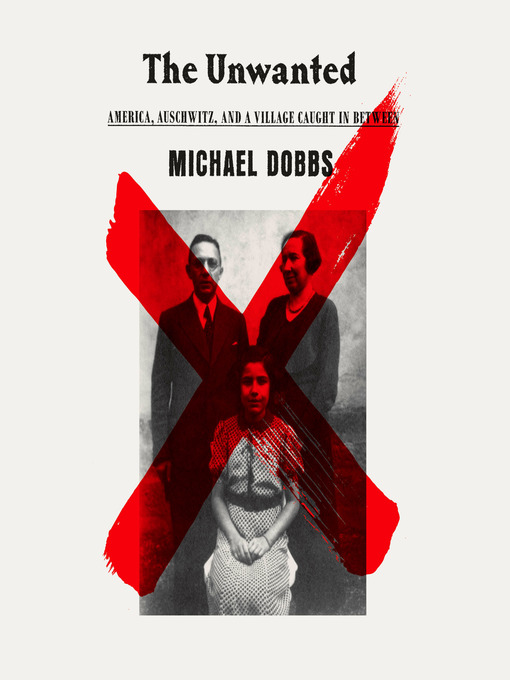The Unwanted
America, Auschwitz, and a Village Caught In Between
In 1938, on the eve of World War II, the American journalist Dorothy Thompson wrote that "a piece of paper with a stamp on it" was "the difference between life and death." The Unwanted is the intimate account of a small village on the edge of the Black Forest whose Jewish families desperately pursued American visas to flee the Nazis. Battling formidable bureaucratic obstacles, some make it to the United States while others are unable to obtain the necessary documents. Some are murdered in Auschwitz, their applications for American visas still "pending."
Drawing on previously unpublished letters, diaries, interviews, and visa records, Michael Dobbs provides an illuminating account of America's response to the refugee crisis of the 1930s and 1940s. He describes the deportation of German Jews to France in October 1940, along with their continuing quest for American visas. And he re-creates the heated debates among U.S. officials over whether or not to admit refugees amid growing concerns about "fifth columnists," at a time when the American public was deeply isolationist, xenophobic, and antisemitic.
A Holocaust story that is both German and American, The Unwanted vividly captures the experiences of a small community struggling to survive amid tumultuous world events.
-
Creators
-
Publisher
-
Release date
April 2, 2019 -
Formats
-
OverDrive Listen audiobook
- ISBN: 9781984845627
- File size: 321022 KB
- Duration: 11:08:47
-
-
Languages
- English
-
Reviews
-
Publisher's Weekly
July 22, 2019
With chilling accuracy, historian Dobbs (Six Months in 1945) looks at the fates of German Jewish refugees from Nazi Germany by weaving together three narratives: those of the Jewish residents of the village of Kippenheim, that of the larger plight of the Jews in Germany, and the resulting debates over immigration policy in the U.S. In Kippenheim, Dobbs recounts, Jews suddenly found themselves the object of violence on Nov. 10, 1938. They were part of a larger trend of German Jews applying for sanctuary in the U.S., but about 250,000 Germans had applied for U.S. visas by 1939, of whom only 27,370 were admitted every year. In the U.S., President Roosevelt struggled to balance humanitarian efforts with anti-Semitic backlash from his constituents; policy makers considered but declined to raise visa quotas or accept groups of refugee children. Denied asylum, many of Kippenheim’s Jewish inhabitants were transported to concentration camps. The author’s remarkable archival work, drawing on a wealth of previously neglected material and sources provided by prominent Kippenheimer families, produces a gripping account whose fine details address the enduring question of genocidal hatred. Haunting photographs punctuate the text: a shattered synagogue, German officers deporting a truckful of Kippenheimers, a 1942 hastily scribbled father’s final message to a daughter. This is gut-wrenching history. Agent: Raphael Sagalyn, IMC/Sagalyn.
-
Loading
Why is availability limited?
×Availability can change throughout the month based on the library's budget. You can still place a hold on the title, and your hold will be automatically filled as soon as the title is available again.
The Kindle Book format for this title is not supported on:
×Read-along ebook
×The OverDrive Read format of this ebook has professional narration that plays while you read in your browser. Learn more here.

